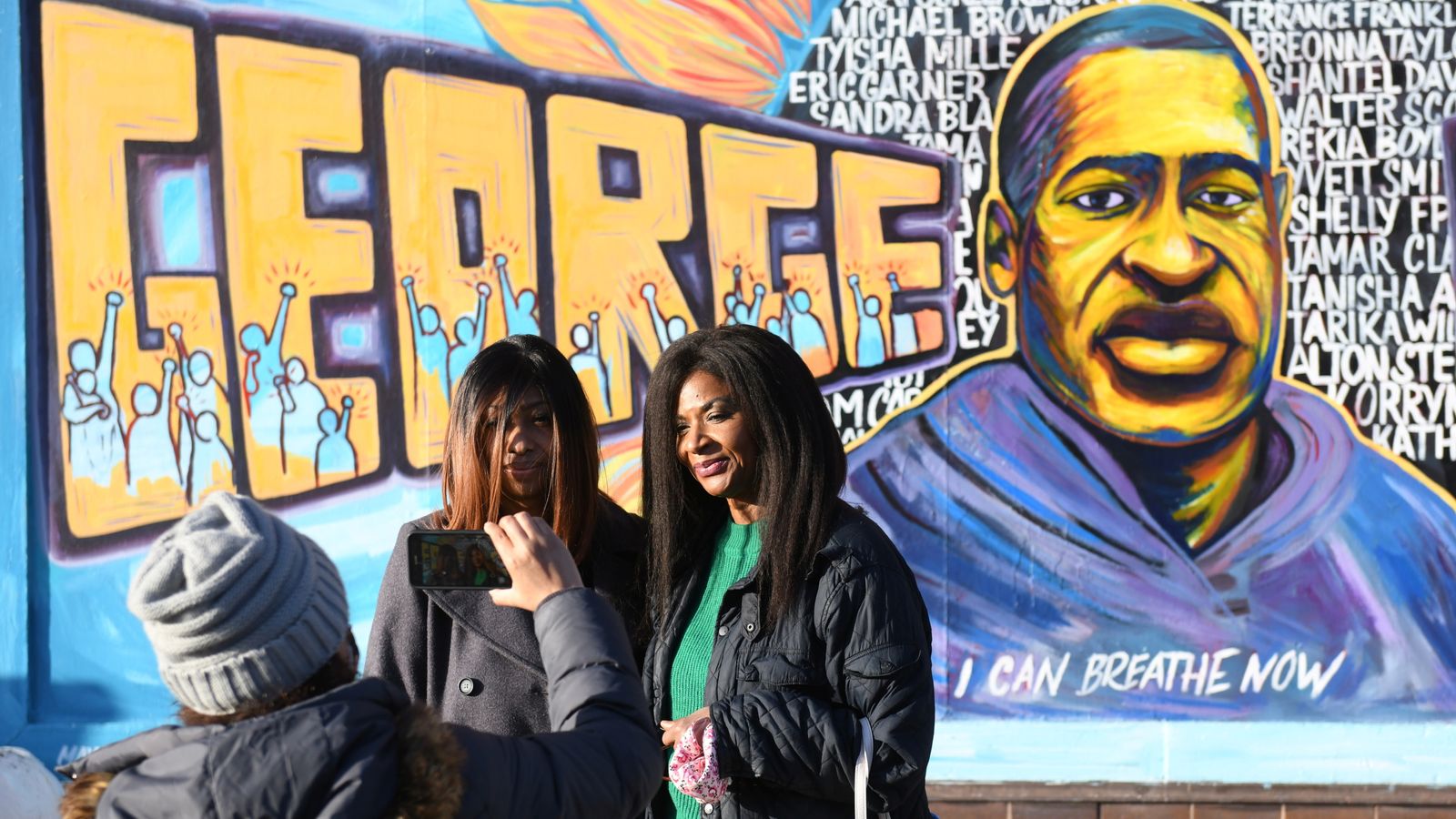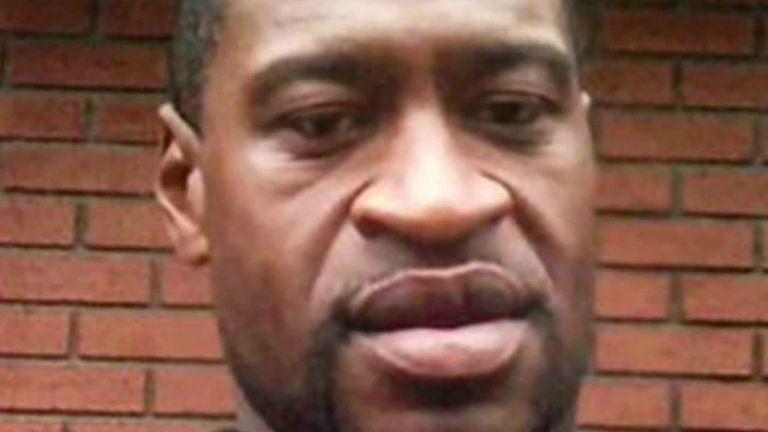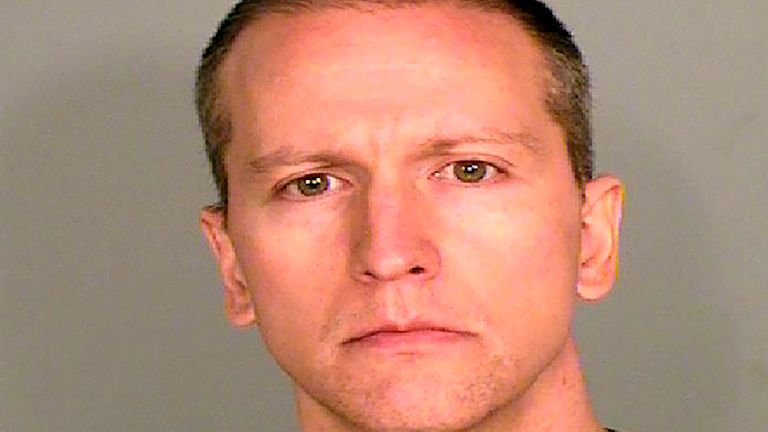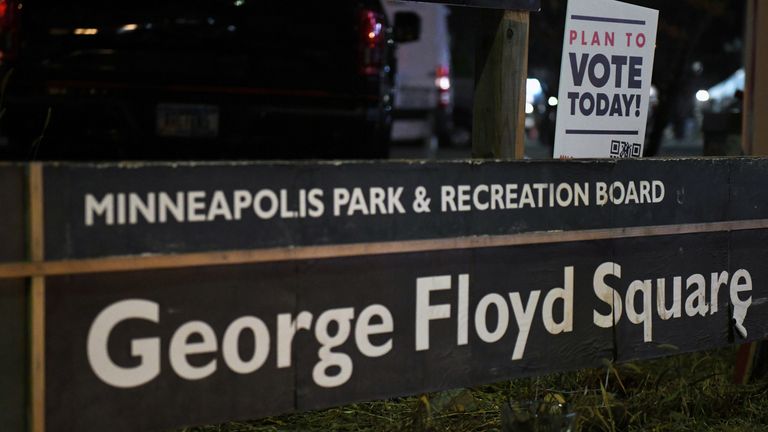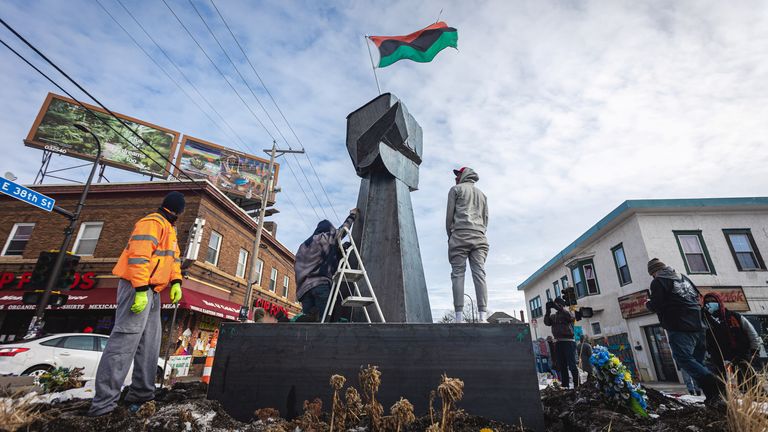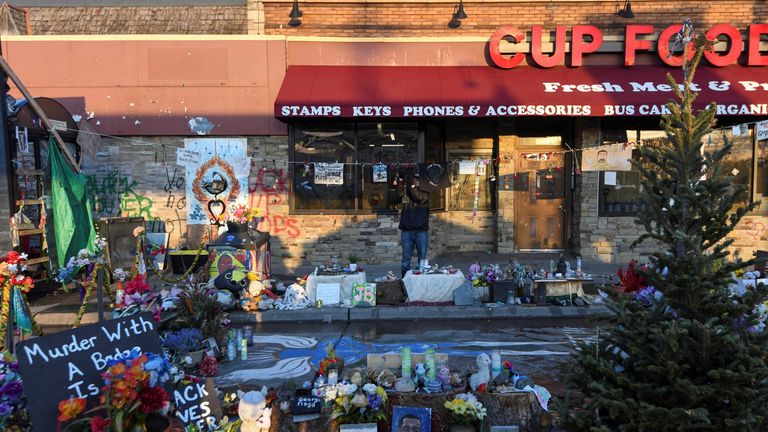Another black man dying in police custody was nothing new in America.
The killing of George Floyd though had one big difference – it was seen around the world.
The video of him shouting “I can’t breathe” sparked global outrage. A police officer’s knee on his neck for nearly nine minutes as he called for his deceased mother.
George Floyd’s death ignited an explosion of worldwide protests.
But the epicentre of the anger was an unassuming suburb of Minneapolis.
The corner of Chicago Avenue and 38th Street – an intersection now known as George Floyd Square – is once again the centre of global attention.
On Monday, the trial of former police officer Derek Chauvin, who is charged with his murder, begins.
As you approach the crossroads, it’s closed from all four directions.
A sign reading, “You are now entering the Free State of George Floyd”, stands by a road block.
As you enter on foot, the area is covered in murals, tributes and flowers. It feels a no-go area to anyone who doesn’t acknowledge its sanctity.
Eliza Wesley calls herself the square’s gatekeeper.
“I’ve been out here since day one, since George Floyd died. I have not stopped not one time – rain, snow, fall, sleet, I’ve told them I’ll be here,” she says.
“For the trial we will be here. We will have projectors here. Where the people in the community can sit together, we can watch the trial, we can cry together, we can weep together, we can talk together, we can hold one another. We can comfort one another.”
The lives of almost everyone you meet here feel touched by his death. The convenience store that called the police after George Floyd allegedly used a fake $20 bill feels forever defined by this event.
The owner Samir Abumayyaleh shows me the pile of letters they’ve received from around the world.
“Please tell the clerk who called the police it was not their fault,” he reads from one letter.
Another blames the store for what happened. “You’re complicit in George Floyd’s murder. You called the cops over a $20 bill. Shame on you. And now a man is dead.”
As he attempts to read another which says, “you have my heartfelt sympathy – it’s horrible that you got caught up in this murder”, his voice breaks and he stops reading for fear of crying.
His pain is palpable. Born in Palestine, Samir came to America to start a new life and has had Cup Foods for more than 30 years.
“No matter where you go, especially if you’re Palestinian, we escaped injustice before to come here, but at the same time, injustice still goes on even in America,” he says.
When it comes to justice now, there’s a sense of apprehension here – even anxiety. Many are sceptical the trial will deliver the verdict they want.
Nearly 10 months since George Floyd’s death, there’s a sense here nothing has changed when it comes to the treatment of black people by police.
At the square’s barber shop they’re unconvinced the trial will bring any sort of healing.
“Either way we’re going to burn our city down. If he got 100 years, he got 10 years it wouldn’t matter,” says Terry Allen. “Nothing’s changed.”
The Minneapolis courthouse is already heavily fortified, surrounded by a high fence and barbed wire.
There are peaceful protests planned for the start of the trial but the National Guard is on standby in anticipation of more unrest.
In the summer, arson and looting broke out across the city.
A police precinct near where George Floyd was killed was burnt to the ground and law enforcement lost control of large areas of the city.
No white police officer has ever been convicted over the death of a black person in Minnesota. This time though, the eyes of the world are on this trial.
But hope is fragile that George Floyd’s death will change the course of history.
